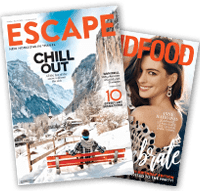Sometime last century as I was sipping Veuve Clicquot a friend explained why he referred to it as ‘the widow’. Apart from the fact that Veuve means ‘widow’ in French (which wasn’t one of the few French words I knew at the time) he told me the story of Madame Clicquot and it made me love those bubbles all the more.
So when I heard Fiona McIntosh’s latest book is about a woman finding new ways to produce champagne in World War I – with some romance in the fizzy mix of course – I knew it was one to put on my holiday reading list.
After working in the travel industry for years, including running an award-winning travel magazine that she founded with her husband, Fiona segued into writing novels where the locations share starring bill with the characters.
And today I’m chatting to Fiona about her latest book, The Champagne War.
Researching champagne production in Epernay and Reims sounds like a pretty great way to prepare for your new book. Had you spent much time in the area before you started The Champagne War, and how often did you return when the research began?
Reims is a major cathedral city that I have visited several times over my life and its neighbour, Épernay is famous for champagne and is a very beautiful region so yes, I knew the region from my travels, but not as well as I do now.
For the novel I made three trips into the Champagne region as there was so much research information to gather up from how champagne was made in those times to how people lived, especially how they survived the war on their doorstep.

The Champagne War is set during World War I. So much in the world has changed since then, but how did it feel to be able to walk through the crayeres where so little has changed over the years?
It was humbling to walk in the footsteps of history and indeed, as a writer who connects into the era emotionally, I could sense the memories of people from down the decades who have been involved in the champagne industry within those crayeres.
But there are also physical reminders of their lives – not just the ageing bottles but they’ve scrawled directions on walls, created artworks too.
Read: A canal boat holiday through Burgundy wine country
Strong women and champagne go hand in hand with Veuve Clicquot, Bollinger, Laurent-Perrier and Pommery among the bubbles brought to us by champagne’s famous widows, and when you went looking for inspiration serendipity lent a hand when you met Sophie Signolle from House Gonet. How did researching the women of champagne help you bring this book to life?
They inspired the book… all of them. Knowing strong women, widows, entering an all-male world and changing the industry for the better through their creativity and drive was a key reason to write this story.
Few know the contribution of women that took champagne and its industry out of the ordinary and into the extraordinary… from developing the liquor out of a sweet beverage into a brilliant dry quaffing experience to changing the bottle shape, achieving a new clarity for the champagne, and inventing the cleverly simple process we now know as ‘riddling’ that removes the sediment from the second fermentation.
Pommery and Clicquot inspired Sophie Signolle who taught me what I know about champagne in order to write this novel and so all three of these brilliant widows are in my pages.
For those lucky enough to be able to travel to France at the moment, and for us Australians dreaming of the day, what are some of your tips for champagne lovers travelling to the region?
You can visit the Champagne region on a day trip – it’s just a couple of hours away from Paris and easily done by coach or train.

However, I would stay longer… perhaps three days and ensure that you have time to visit the vineyards, a private cellar tour in Épernay, and get a tour of the crayeres at Veuve Clicquot in Reims. And then of course eat and make merry in a particularly beautiful region of France.
Summer it’s hot and crowded. I would choose spring or just after harvest in September/October.
Read: Affordable boutique luxury in the heart of Paris
Do you prefer to drink local drops on your travels, and so might sip prosecco in Italy and cava in Spain, or are you more of a champagne person whatever the location?
Well, curiously enough, I’m a teetotaller 🙂 However, there are two alcoholic drinks I’m capable of sipping and enjoying.
The first is French champagne and I’m sure I could stretch to a prosecco in Italy but in Spain it would be all about sherry and Pedro Ximenez… the other tipple I adore.
What other interesting local drinks have you discovered on your travels?
Pedro Ximenez in Spain! Magnificent. I also discovered a drink called Ratafia in Épernay while researching The Champagne War and it opened up a world of delight – I had to include it in the story, I was so impressed by it.
Your previous books have taken you to Africa and India as you researched The Diamond Hunter and The Tea Gardens. Do you usually get the inspiration for the stories before you go to the country, or have they been sparked by previous travels and experiences?
Before I became a full time author of novels, I spent most of my career in the travel industry and I was fortunate enough to roam the world for 20 years as my day job. Prior to that I was a helpless traveller.
So these sweeping historical stories have emerged out of a lifetime of travel, inspired by what I’ve experienced over the course of my life, but now I travel only for books and I let the stories and characters find me.
Location comes first. Where would my readers like to travel with me next?
Read: The most romantic hotels in London
As someone who travelled so much for work over the years researching stories for magazines and novels, how have you coped with being forced to stay so close to home in 2020?
It’s tricky! I’ve kept myself deliberately busy with flat out writing and will have two new books written by the end of 2020 because of the travel restrictions. Keeping in mind I would normally make at least two but often three international research trips each year, I have had my wings seriously clipped.
But as I can’t control that situation, it’s no good bleating and I have become active in hunting down a wonderful new story that is Australia-based. My first one – quite exciting really.
Do you already know where your next book will be set? And did you manage to travel there before this year changed everything?
Yes! The truth is I always know where my next two books are set, and I managed to get the research done for the London-based one over the last two years and that book is finished and will be out in June 2021 called Mirror Man. It’s the third DCI Jack Hawksworth novel that a lot of people are waiting on.
Then the 2021 historical novel is The Spy’s Wife and that is set in Britain and Germany. I was so fortunate to roam through both countries earlier this year and just skidded home before the doors were shut on Australia in March. So we’re set!
What are you most looking forward to when we can travel freely again?
Being able to research the huge 1930s tale bursting out of me that I had hoped to release in 2022 but due to Covid I can’t do all the information gathering until next year at the earliest and possibly not even then. So, I’m resigning myself to hefty travel in 2022 and lots of research to get this big story written and released for Christmas 2023.
I’d also promised myself either The Holy Land or a chance to see the Northern Lights for a milestone birthday that has now passed. I suspect I’ll treat myself to one of those as soon as gateways are safely and freely open again.
The Champagne War by Fiona McIntosh is out now. If you’re in Australia you can find all the ways to buy it here. And if you’re an international reader you can find it here with a free audio book option with an Audible trial.



Leave a Comment